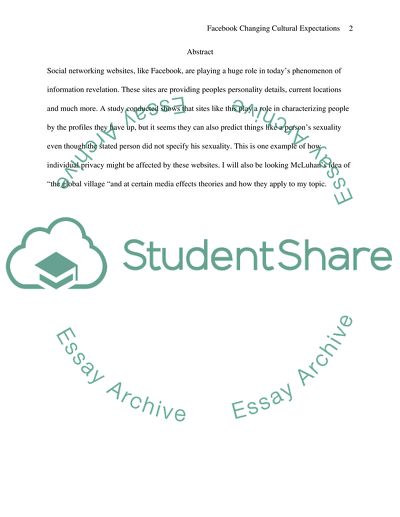Cite this document
(Facebook Changing Cultural Expectations Term Paper, n.d.)
Facebook Changing Cultural Expectations Term Paper. Retrieved from https://studentshare.org/social-science/1728144-is-facebook-changing-cultural-expectations-about-individual-privacy-and-will-facebook-lead-to-the-erosion-of-it
Facebook Changing Cultural Expectations Term Paper. Retrieved from https://studentshare.org/social-science/1728144-is-facebook-changing-cultural-expectations-about-individual-privacy-and-will-facebook-lead-to-the-erosion-of-it
(Facebook Changing Cultural Expectations Term Paper)
Facebook Changing Cultural Expectations Term Paper. https://studentshare.org/social-science/1728144-is-facebook-changing-cultural-expectations-about-individual-privacy-and-will-facebook-lead-to-the-erosion-of-it.
Facebook Changing Cultural Expectations Term Paper. https://studentshare.org/social-science/1728144-is-facebook-changing-cultural-expectations-about-individual-privacy-and-will-facebook-lead-to-the-erosion-of-it.
“Facebook Changing Cultural Expectations Term Paper”, n.d. https://studentshare.org/social-science/1728144-is-facebook-changing-cultural-expectations-about-individual-privacy-and-will-facebook-lead-to-the-erosion-of-it.


